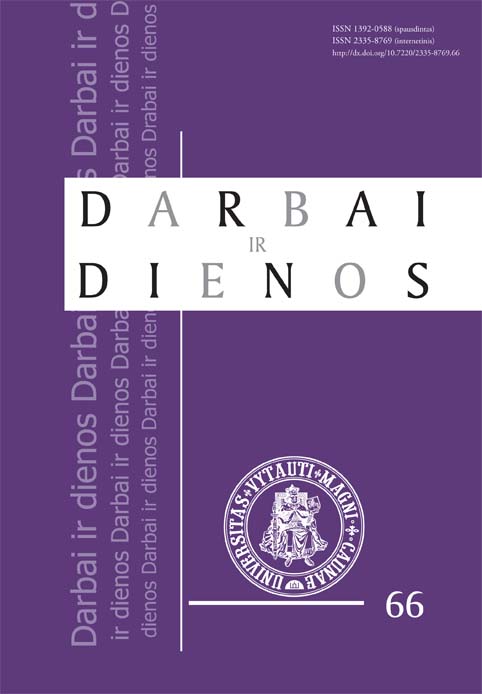Les ambiguites de la rhetorique politique : Czeslaw Milosz, “La pensee captive”
The Ambiguities of Political Rethoric: Czesław Miłosz’s „The Captive Mind“
Author(s): Christine Mengès-Le PapeSubject(s): Language studies, Language and Literature Studies, Theoretical Linguistics, Politics and communication, Theory of Communication, Sociology of Politics
Published by: Vytauto Didžiojo Universitetas
Keywords: Czesław Miłosz; Ideological terror; Political credulities; Pressures; Grandiloquence of speeches; Dissimulation; Political monitoring; Ideological language;
Summary/Abstract: Czesław Miłosz was born in 1911 in the countryside of Lithuania then located in the Russian empire, a part of Europe ravaged by wars and unknown to Westerners. It is on these lands, both central and remote, that he had his first premonition of ideological terror: “my consciousness was born with the war. … The Germans arrived, the Tsarist armies were evacuated from Lithuania, accompanied by masses of fugitives.” Violently deprived in this way of political credulities, Miłosz became a poet. He was seized by the need to write in order to protect himself from the grandiloquence of speeches that arouse fear: “We had to write, [...] cultural life refused to be crushed.” In his essay published in 1953 in Paris, The Captive Mind, Miłosz denounces the subjugation of writing in times of political totalitarianism or softer suppression. Its pages contain striking lessons on the development of ideological language, through the contrary arts of concealment and of political monitoring. Then it touches upon the difficult yet necessary tasks of reflection and of its expression. The person who on the 1st of October, 1980, will receive the Nobel Prize for Literature explains past and current pressures coming to enslave the speeches and even the attitudes of personalities to the point of their destruction. The work of Czesław Miłosz allows us to question the methods contained in the official language and the means given by rhetoric to express a thought. That is the question often asked by the author: How to reason correctly and to write in a meaningful way so as to communicate to readers something important?
Journal: Darbai ir dienos
- Issue Year: 2016
- Issue No: 66
- Page Range: 177-184
- Page Count: 8
- Language: French

